6 foods to boost your mood — including 1 for people with a sweet tooth
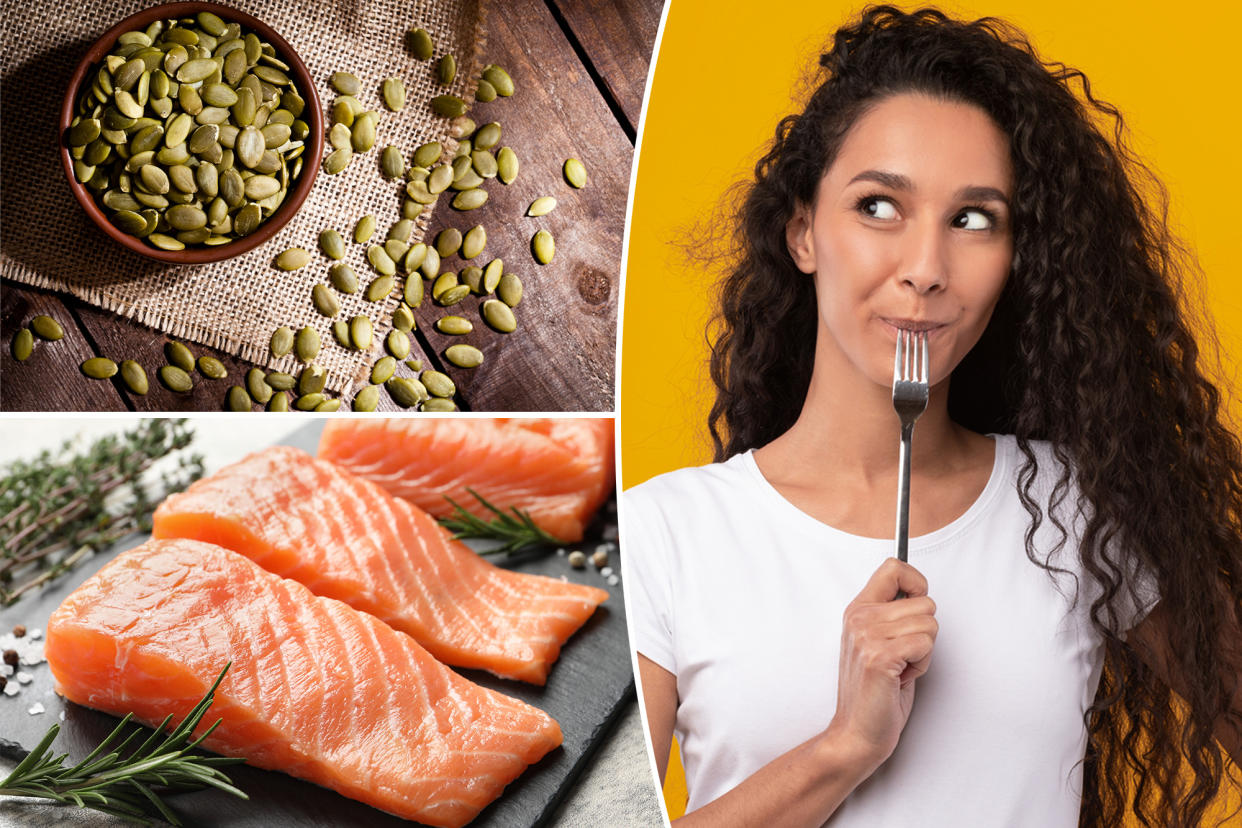
If you’re feeling down, doughnut grab that pastry for comfort.
Consuming too much sugar can cause your blood sugar to spike and then crash, spurring feelings of sluggishness and exhaustion. Instead, dietitians are revealing six healthy foods that can lift your spirits — pumpkin seeds, fatty fish, avocados, oranges, dark leafy greens, and dark chocolate.
“An overall balanced diet that contains plenty of nutrient-dense foods is probably best when it comes to mental health,” dietitian Christine Byrne, the owner of Ruby Oak Nutrition in Raleigh, NC, told Yahoo Life.

Byrne and Michelle Routhenstein, a preventive cardiology dietitian at Entirely Nourished, shared the foods that have been linked to feel-good hormones like serotonin and dopamine.
Pumpkin seeds
Routhenstein recommends consuming about 1 ounce of pumpkin seeds a few times a week by scattering them on top of salads, yogurt, or oatmeal or pairing them with an orange.
“Pumpkin seeds are a great source of tryptophan, an amino acid that supports mood regulation by aiding in the production of serotonin, a neurotransmitter associated with feel-good feelings,” Routhenstein explained to Yahoo Life.
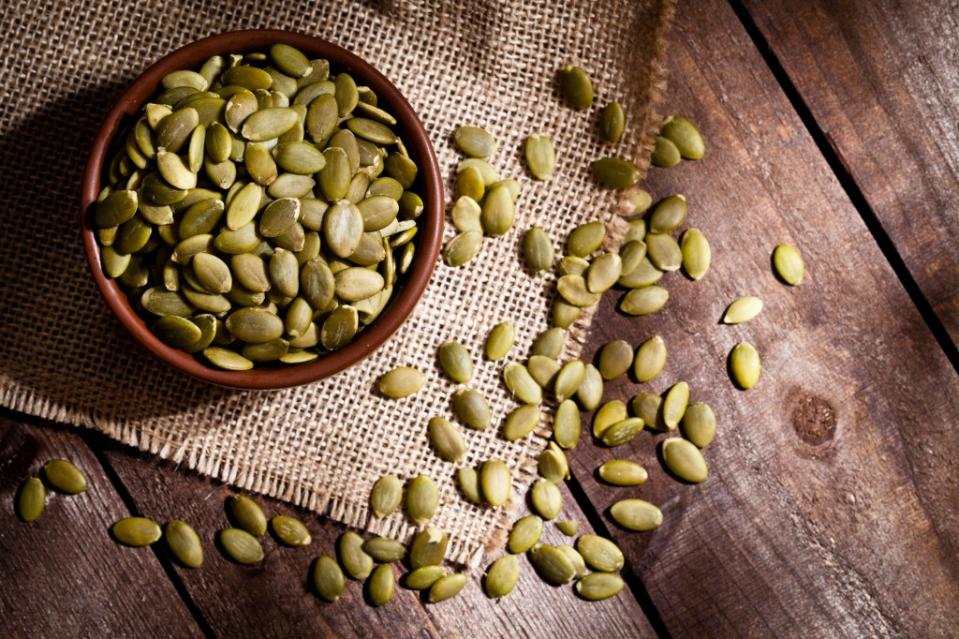
One ounce of pumpkin seeds contains 163 milligrams of tryptophan.
Years ago, the World Health Organization set 4 milligrams per kilogram of body weight as the recommended daily intake for tryptophan.
Authors of a 2020 study said more trials need to be conducted on the “significant antidepressive potential” of pumpkin seeds. The seeds have also been shown to help reduce the risk of heart disease, hypertension, arthritis, autoimmune-related disorders, and cancer.
Fatty fish
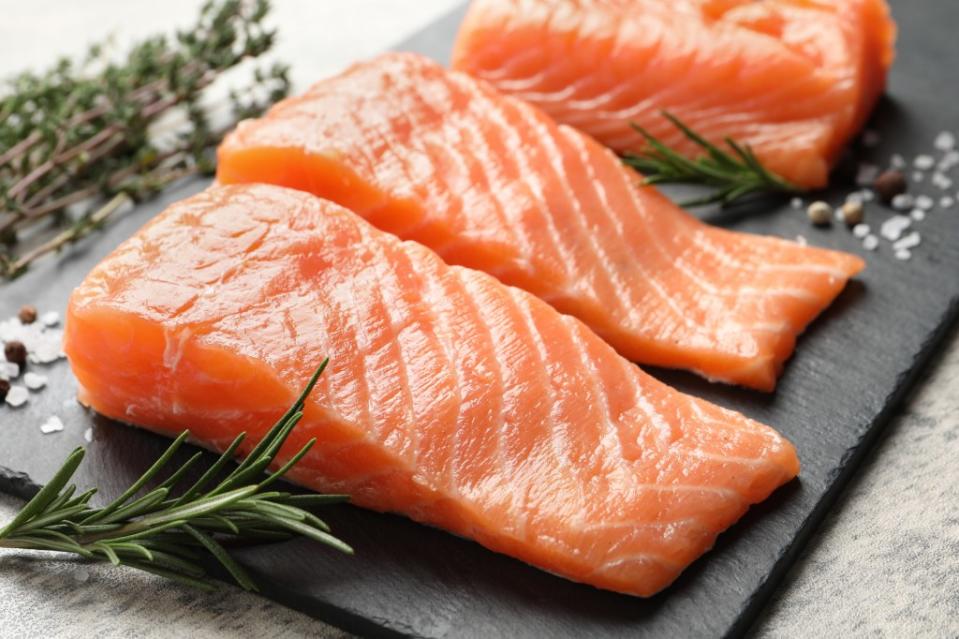
Holy mackerel — fatty fish like anchovies, herring, mackerel, black cod, salmon, sardines, bluefin tuna, whitefish, striped bass, and cobia are rich in omega-3 fatty acids.
Omega-3 fatty acids support heart health by slightly lowering blood pressure, reducing the risk of irregular heartbeats, and decreasing the amount of triglycerides in the blood. High triglycerides can raise the risk of heart attack or stroke.
“Based on the research so far, the nutrients that seem to have the strongest link to improved mood are omega-3 fatty acids,” Byrne said.
The American Heart Association recommends consuming two servings of fish a week, particularly fatty fish. About 4 to 5 ounces of Atlantic salmon provide about 3 grams of omega-3 fatty acids.
Avocados
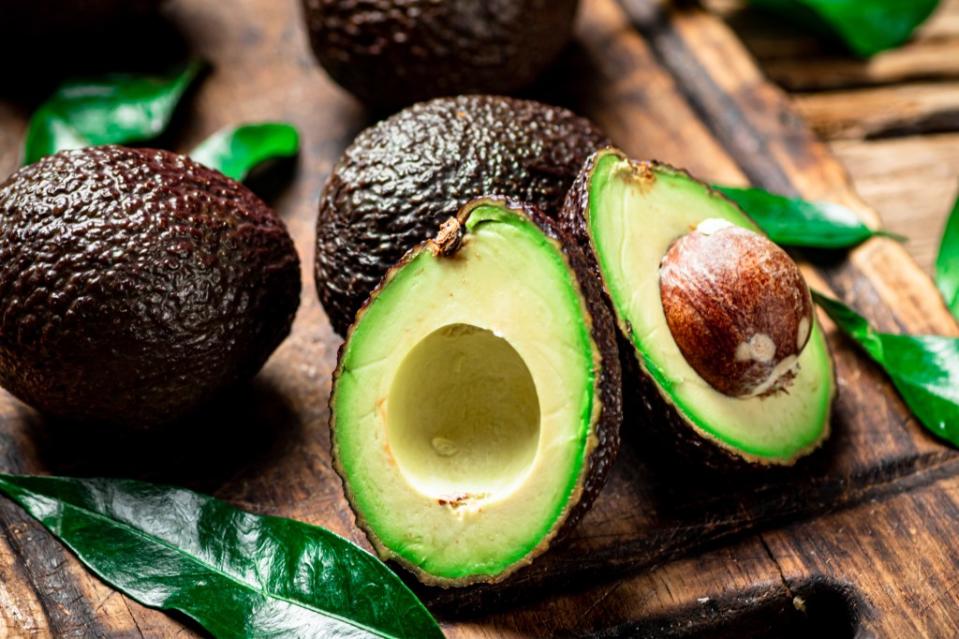
“Avocados are packed with heart-healthy monounsaturated fats, notably oleic acid, which is vital for brain health and linked to a lower risk of depression,” Routhenstein told Yahoo Life.
Avocados also have tryptophan — half of one (about 100 grams) contains 33 milligrams of tryptophan, according to HealthCentral.
Eating at least two servings of avocado a week has been linked to a lower risk of cardiovascular disease and coronary heart disease. A serving is typically one-third of a medium avocado, about 50 grams.
Oranges
The American Heart Association recommends consuming 4½ cups of fruit every day — oranges have been shown to aid brain health because they are rich in vitamin C. Vitamin C deficiency is common in people with depression.
“Oranges contain flavonoids, such as hesperidin, which have antioxidant properties and may help reduce inflammation in the brain, supporting overall mood stability,” Routhenstein shared.

A 2022 study found that drinking flavonoid-rich orange juice three times a day for eight weeks improved depressive symptoms in young adults.
Dark leafy greens
The Dietary Guidelines for Americans recommends consuming 1½ cups of dark green vegetables a week.
Dark leafy greens include kale, collard greens, spinach, swiss chard, arugula, and bok choy.
“Green leafy vegetables are good sources of folate and magnesium, which are important in the prevention of depression,” authors of a 2018 study wrote. “Folate is involved in the metabolism of monoamines such as serotonin in the brain. Reduced synthesis of serotonin results [in a] depressed mood.”
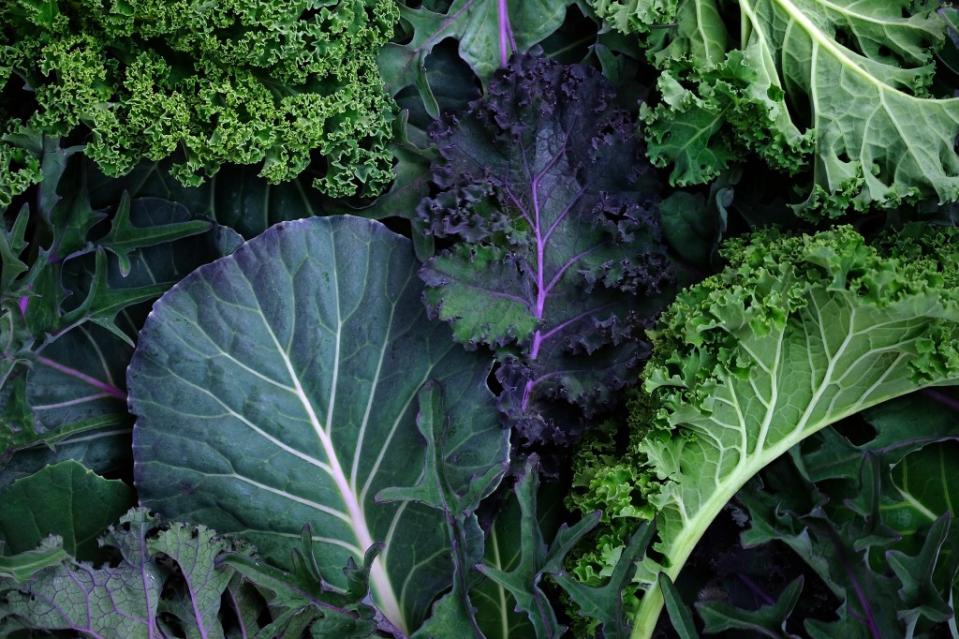
Dark chocolate
A small, three-week 2022 study conducted in South Korea found that participants had better moods after eating 10 grams of dark chocolate with 85% cocoa content three times a day.
Those who consumed chocolate with 70% cocoa or no chocolate at all didn’t see the same effects.
The researchers credited changes in the microbes that live in the intestines.
“These results suggest that dark chocolate has prebiotic effects by restructuring the diversity and composition of the gut microbiome, which may in turn improve mood via the gut-brain axis,” they wrote.

A registered dietitian with Cleveland Clinic Canada’s Executive Health program recommends a dark chocolate serving size between 1 and 2 ounces or 30 to 60 grams.
One ounce is about three thin squares of chocolate from a larger bar.

